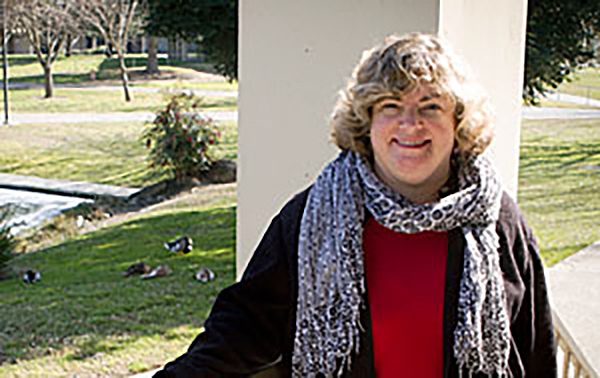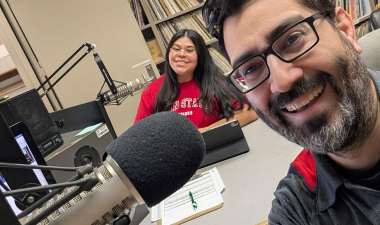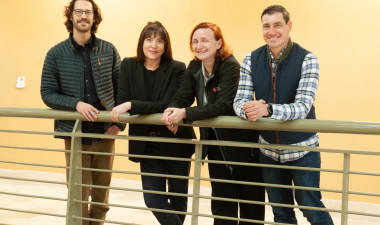

She began teaching about hate crimes at Stanislaus State in 1994, when the topic was still in its infancy as an academic subject. She wrote a broad, comprehensive and authoritative hate crimes textbook that remains one of the only of its kind, and the book's third edition is due out early this year.
But where Gerstenfeld truly sees the impact of her research is often in her own classroom, where she's able to apply real-world experience and study to revitalize a class she's been teaching for 18 years.
"My research always makes its way into the classroom," Gerstenfeld said. "I think that benefits the students in a few ways — not only do they get to hear about cutting-edge work, but I think my enthusiasm for the new work carries over into the classroom, making my teaching more interesting. It helps keep me from getting into a teaching rut if I have fresh things to say."
A hate crime is a criminal act motivated most often by the victim's race, religion or sexual orientation, Gerstenfeld said. Recent examples include a white supremacist killing six people at a Sikh temple in Wisconsin and a man who was arrested for spray painting anti-gay graffiti on buildings at UC Berkeley.
Gerstenfeld, who has been the chair of the Stanislaus State Criminal Justice department for eight years, said learning about hate crimes is beneficial for people going into any career, and her class fulfills a general education requirement for that reason.
"Every one of us encounters bias in our lives," she said. "Understanding the history and reasons for that bias, as well as some of the approaches for dealing with it, is important for everyone."
Criminal Justice Department Thriving
The criminal justice department has excelled in Gerstenfeld's time as chair, and the subject remains one of the university's most popular majors. The department boasts more than 600 undergraduates, she said, a 20 percent increase over last year.
"We have a strong program, with interesting concentrations like juvenile justice and forensics," she said. "The faculty in this department are really active. They're doing a lot of interesting things."
That includes a number of criminal justice professors who are conducting research overseas. Huan Gao has done groundbreaking research on drug use among women in China. Chau-Pu Chiang is doing comparative research on bullying in the United States and Taiwan. Greg Morris is interested in Pacific Islanders' views of global warming as a criminal act. Abu Mboka has studied human rights violations in the Sierra Leonean Civil War.
Gerstenfeld has incorporated her own international research into her hate crimes text. The newest edition incorporates her recent research on the subject in Croatia, which she said has hate crime laws and issues similar to those in the United States. Gerstenfeld studied there on a Fulbright grant in spring 2011 and hopes to return soon.
Enforcement of hate crimes is complicated, she said, because there has to be proof that the crime was motivated by race, religion, sexual orientation or some similar factor. In the U.S., enforcement is further complicated because many states have laws that differ from federal laws.
"I'd like to get a more complete picture of what crimes are being committed in Croatia and what similar issues they face with enforcing laws," she said.
Despite her personal scholarly achievements, though, Gerstenfeld said she prefers teaching to research.
"Teaching has more of an impact," said Gerstenfeld, who has also penned an introductory criminal justice text. "I like the direct human connection and the ability to change a student's view of the world."


